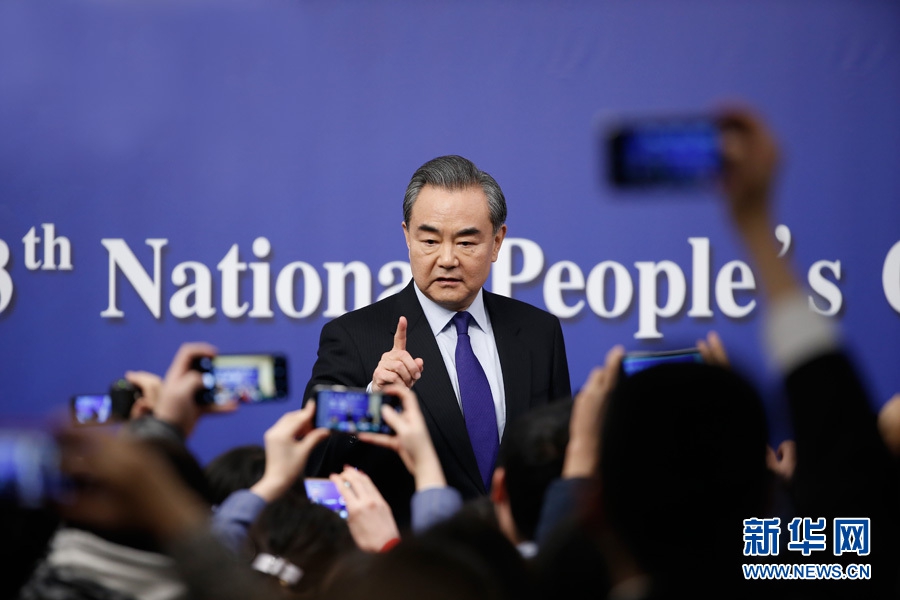
1. The five functions of the operating system are processor management, memory management, device management, file management and job management. Processor management The most basic function of processor management is to process interrupt events. After configuring the operating system, various events can be processed.
2. The main function of the computer operating system is process management, and its work is mainly process scheduling. In the case of a single user and a single taskNext, the processor is only monopolized by one user's task, and the process management work is very simple.
3. Operating System (abbreviation: OS) is a group of interrelated system software programs that supervise and control computer operation, use and run hardware, software resources and provide public services to organize user interaction.
4. Five major management functions of the operating system: (1) Job management: including tasks, interface management, human-computer interaction, graphical interface, voice control and virtual reality, etc. ( 2) File management: also known as information management. ( 3) Storage management: The essence is the management of storage "space", which mainly refers to the management of the main memory.
Any information system has five basic functions, namely: information collection and recording (input); information storage; information processing; information transmission; information output .
According to the functional introduction of the information system, the information system has five basic functions: input, storage, processing, output and control. Different functions have different functions, such as input function: the input function of the information system is determined by the purpose to be achieved by the system, the ability of the system and the permission of the information environment.
Five basic functions of the information system: input, storage, processing, output and control. Input function: The input function of the information system is determined by the purpose to be achieved by the system, the ability of the system and the permission of the information environment.Storage function: Storage function refers to the ability of the system to store various information and data. Mainly including: statistical functions.
The operating system has five functions: processor management: mainly controls and manages the work of the CPU. Storage management: mainly allocate and manage memory. Device management: mainly manage basic input and output devices. File management: responsible for the organization, storage, operation and protection of computer files.
The functions of the computer operating system include: processor management, memory management, device management, file management, job management and other functional modules. Processor management. The most basic function of processor management is to handle interrupt events. The processor can only detect interrupt events and generate interrupts and cannot process them.
The main function of the computer operating system is process management, and its main work is process scheduling. In the case of a single user and a single task, the processor is only monopolized by one user's task, and the work of process management is very simple.
The main functions of the operating system are process and processor management, job management, storage management, device management and file management, as follows: process and processor management. Because the execution of the program must rely on the processor, only one program flow can be processed and executed at any time. Homework management.
I) Processor management The most basic function of processor management is to handle interrupt events. The processor can only detect interrupt events and generate interrupts, and cannot handle these interrupt events. After configuring the operating system, all types of events can be handled.Another function of processor management is processor scheduling.
Five management functions of the operating system: job management: including tasks, interface management, human-computer interaction, graphical interface, voice control and virtual reality, etc. File management: also known as information management. Storage management: The essence is the management of storage "space", which mainly refers to the management of the main memory.

The storage management function of the operating system is to manage memory resources. It mainly realizes memory allocation and recovery, storage protection and memory expansion. The device management of the device management operating system is responsible for allocating and recycling external devices, and controlling external devices to operate according to the requirements of user programs.
The functions of the computer operating system include: processor management, memory management, device management, file management, job management and other functional modules. Processor management. The most basic function of processor management is to handle interrupt events. The processor can only detect interrupt events and generate interrupts and cannot process them.
The five functions of the operating system are processor management, memory management, device management, file management and job management.Processor management The most basic function of processor management is to process interrupt events. After configuring the operating system, various events can be processed.
casino plus free 100-APP, download it now, new users will receive a novice gift pack.
1. The five functions of the operating system are processor management, memory management, device management, file management and job management. Processor management The most basic function of processor management is to process interrupt events. After configuring the operating system, various events can be processed.
2. The main function of the computer operating system is process management, and its work is mainly process scheduling. In the case of a single user and a single taskNext, the processor is only monopolized by one user's task, and the process management work is very simple.
3. Operating System (abbreviation: OS) is a group of interrelated system software programs that supervise and control computer operation, use and run hardware, software resources and provide public services to organize user interaction.
4. Five major management functions of the operating system: (1) Job management: including tasks, interface management, human-computer interaction, graphical interface, voice control and virtual reality, etc. ( 2) File management: also known as information management. ( 3) Storage management: The essence is the management of storage "space", which mainly refers to the management of the main memory.
Any information system has five basic functions, namely: information collection and recording (input); information storage; information processing; information transmission; information output .
According to the functional introduction of the information system, the information system has five basic functions: input, storage, processing, output and control. Different functions have different functions, such as input function: the input function of the information system is determined by the purpose to be achieved by the system, the ability of the system and the permission of the information environment.
Five basic functions of the information system: input, storage, processing, output and control. Input function: The input function of the information system is determined by the purpose to be achieved by the system, the ability of the system and the permission of the information environment.Storage function: Storage function refers to the ability of the system to store various information and data. Mainly including: statistical functions.
The operating system has five functions: processor management: mainly controls and manages the work of the CPU. Storage management: mainly allocate and manage memory. Device management: mainly manage basic input and output devices. File management: responsible for the organization, storage, operation and protection of computer files.
The functions of the computer operating system include: processor management, memory management, device management, file management, job management and other functional modules. Processor management. The most basic function of processor management is to handle interrupt events. The processor can only detect interrupt events and generate interrupts and cannot process them.
The main function of the computer operating system is process management, and its main work is process scheduling. In the case of a single user and a single task, the processor is only monopolized by one user's task, and the work of process management is very simple.
The main functions of the operating system are process and processor management, job management, storage management, device management and file management, as follows: process and processor management. Because the execution of the program must rely on the processor, only one program flow can be processed and executed at any time. Homework management.
I) Processor management The most basic function of processor management is to handle interrupt events. The processor can only detect interrupt events and generate interrupts, and cannot handle these interrupt events. After configuring the operating system, all types of events can be handled.Another function of processor management is processor scheduling.
Five management functions of the operating system: job management: including tasks, interface management, human-computer interaction, graphical interface, voice control and virtual reality, etc. File management: also known as information management. Storage management: The essence is the management of storage "space", which mainly refers to the management of the main memory.

The storage management function of the operating system is to manage memory resources. It mainly realizes memory allocation and recovery, storage protection and memory expansion. The device management of the device management operating system is responsible for allocating and recycling external devices, and controlling external devices to operate according to the requirements of user programs.
The functions of the computer operating system include: processor management, memory management, device management, file management, job management and other functional modules. Processor management. The most basic function of processor management is to handle interrupt events. The processor can only detect interrupt events and generate interrupts and cannot process them.
The five functions of the operating system are processor management, memory management, device management, file management and job management.Processor management The most basic function of processor management is to process interrupt events. After configuring the operating system, various events can be processed.
bingo plus update today Philippines
author: 2025-01-08 14:36Hearthstone arena class win rates reddit
author: 2025-01-08 14:38 Casino Plus login register
Casino Plus login register
453.41MB
Check UEFA Champions League live
UEFA Champions League live
549.86MB
Check Arena plus APK
Arena plus APK
262.89MB
Check Casino free 100 no deposit
Casino free 100 no deposit
741.45MB
Check App to watch Champions League live free
App to watch Champions League live free
865.93MB
Check Hearthstone Wild Decks
Hearthstone Wild Decks
968.23MB
Check European Cup live
European Cup live
658.87MB
Check Hearthstone arena
Hearthstone arena
166.76MB
Check Hearthstone arena class win rates reddit
Hearthstone arena class win rates reddit
288.91MB
Check Walletinvestor digi plus
Walletinvestor digi plus
333.57MB
Check TNT Sports
TNT Sports
432.39MB
Check Hearthstone Arena win rate
Hearthstone Arena win rate
285.61MB
Check Casino Plus free 100
Casino Plus free 100
456.88MB
Check Champions League
Champions League
892.78MB
Check UEFA Champions League live streaming app
UEFA Champions League live streaming app
859.29MB
Check DigiPlus stock
DigiPlus stock
871.92MB
Check Casino Plus free 100
Casino Plus free 100
175.52MB
Check Walletinvestor digi plus
Walletinvestor digi plus
259.29MB
Check Casino Plus login register
Casino Plus login register
334.95MB
Check Casino Plus GCash login
Casino Plus GCash login
889.26MB
Check bingo plus update today
bingo plus update today
332.51MB
Check UEFA Champions League live
UEFA Champions League live
511.75MB
Check bingo plus update today Philippines
bingo plus update today Philippines
758.97MB
Check Hearthstone arena deck Builder
Hearthstone arena deck Builder
314.26MB
Check Hearthstone arena
Hearthstone arena
963.53MB
Check DigiPlus
DigiPlus
794.31MB
Check Hearthstone Arena class tier list 2024
Hearthstone Arena class tier list 2024
956.35MB
Check Casino redeem
Casino redeem
552.15MB
Check UEFA European championship
UEFA European championship
587.99MB
Check UEFA Champions League live
UEFA Champions League live
984.31MB
Check Hearthstone Arena class tier list 2024
Hearthstone Arena class tier list 2024
349.97MB
Check Casino Plus free 100
Casino Plus free 100
898.29MB
Check casino plus free 100
casino plus free 100
174.42MB
Check Casino free 100 no deposit
Casino free 100 no deposit
935.62MB
Check Bingo Plus stock
Bingo Plus stock
598.63MB
Check Hearthstone arena
Hearthstone arena
128.97MB
Check
Scan to install
casino plus free 100 to discover more
Netizen comments More
2400 DigiPlus fair value
2025-01-08 14:13 recommend
1034 Free sports events uefa champions league app android
2025-01-08 14:00 recommend
516 bingo plus update today Philippines
2025-01-08 13:44 recommend
1085 UEFA Champions League standings
2025-01-08 13:15 recommend
1305 DigiPlus Philippine
2025-01-08 12:03 recommend